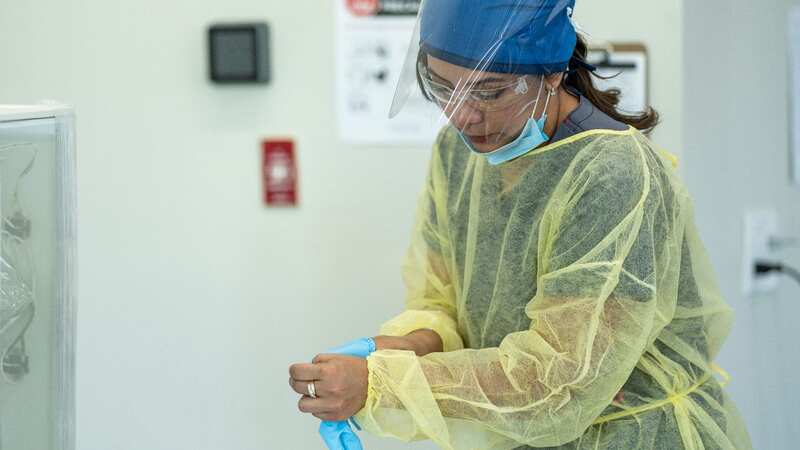Covid cases yet to peak as infections soar and immunity wanes, scientists warn

Covid cases will continue to surge for weeks as this current wave 'has not yet peaked", scientists have warned.
New figures show that overall numbers have soared over the Christmas and New Year period, with JN.1 subvariant emerging as the dominant strain in the last few weeks.
It grew from making up just one per cent of coronavirus cases at the end of October to five per cent by mid-November - and is now topping the table of infections after reaching 51 per cent on Christmas Day. JN.1, which has been reported worldwide, is a descendant of the Pirola variant and has been described as much more immune evasive than its parents.
Professor Christina Pagel, of University College London, has now said that its rapid growth could send the UK hurtling towards its highest infection rate ever. She compared the current strain to the Omicron substrains BA.1 in December 2021 and BA.5 in January 22, which reached their peaks three weeks after surpassing 50 per cent of all Covid cases. Professor Pagel told the i newspaper: "Unfortunately it is likely that this JN.1 wave has not yet peaked and will peak mid-January, either next week or the week after. And then infections will stay very high for a few weeks on the downward slope too. I am sure this wave will rival the first two Omicron waves in 2022 and might even exceed them."
However, she said it is unlikely that hospitalisations will approach the levels seen during the previous Omicron waves. Professor Steve Griffin, a virologist at Leeds University, meanwhile told the newspaper that we may see case numbers "resembling when BA2 emerged", which was England's largest-ever wave in March and April 2022. Medical surveys showed that 7.6 per cent of the population were estimated to be infected with Covid during this period, though hospitalisations and deaths were far lower than during the pandemic.
 Long Covid symptoms - 23 most reported signs from palpitations to vertigo
Long Covid symptoms - 23 most reported signs from palpitations to vertigo
Other scientists have warned about waning immunity. Prof Peter Openshaw, from Imperial College London, told the Sun last month: "Immunity falls over time, and for many, it's been over a year since they had their last booster jabs."
The US Center for Disease Prevention and Control (CDC) has also highlighted the rapid spread of JN.1 - but said in their latest report that is not any more aggressive than other variants in circulation. The CDC wrote: "At this time, there is no evidence that JN.1 presents an increased risk to public health relative to other currently circulating variants."
The UK Health Security Agency's (UKHSA) latest report estimates a Covid-19 prevalence of 4.2 per cent across the total population in England and Scotland - meaning that approximately 1 in every 24 people could test positive for any type of Covid infection at the current time. Prevalence rates were highest in people aged 18 to 44 years, and the highest prevalence regionally was found in London.
The cold winter weather and increased socialising indoors have contributed to the seasonal rise in cases. The NHS and UKHSA are urging all those eligible to come forward for a seasonal COVID-19 vaccine before the window closes on January 31, 2024. Professor Steven Riley, Director General for Data and Surveillance, UKHSA said: "At this time of year, the cold weather, shorter days and increased socialising mean that the potential for transmission of respiratory viruses like COVID-19 is particularly high. This, as well as the possible impact of new variants, means it’s not unexpected to see cases increasing.
"If you are showing symptoms of COVID-19 or other respiratory illnesses, you should try to limit your contact with other people as much as possible, especially those who are older or more vulnerable. It’s important that those people who are most at risk of severe illness and hospitalisation as a result of COVID-19 come forward for their seasonal vaccination to make sure they have the best possible protection this winter. You can get a vaccine through your GP, by booking with a local NHS vaccination service, or you can find a COVID-19 vaccination walk-in site."
Read more similar news:
Comments:
comments powered by Disqus

































